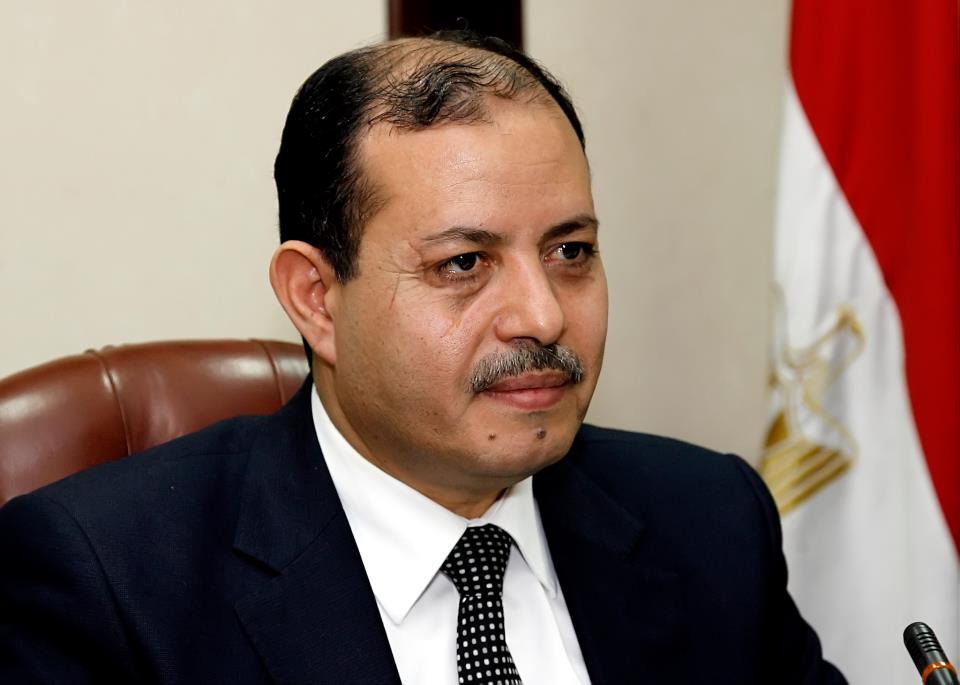By Omnia Al Desoukie
CAIRO: Citizen diplomacy leaders representing over 30 countries including government officials, CEOs and executive directors from global foundations, corporations and universities are convening in Cairo for the first Global Sister Cities and Twinning Summit to discuss the current and future role of sub-national dialogues in building sustainable nations and highlighting successful city-to-city models across the world.
According to Jim Doumas, the executive vice president and interim CEO of Sisters Cities International, the organization hopes that by the end of the three-day conference participants would have a greater understanding of the organization and know how to collaborate with one another.
On Wednesday, the summit’s opening session was attending by Abdel Kawi Khalifa, the governor of Cairo, Ali Abdel Rahman, governor of Giza and Adel Zayed, governor of Qaliubiya. Ambassador Mostafa El-Fikky gave a speech on the importance of citizen diplomacy in the world especially in the MENA region with the current changes taking place in Egypt.
Sister Cities International, founded in 1956 by US President Dwight D. Eisenhower, is a nonprofit citizen diplomacy network that creates and strengthens partnerships between US and international communities on a municipal level.
“Sister Cities International is a grassroots organization decentralized to 600 cities; those are our members and we have 2000 partnerships all over the globe,” Doumas told Daily News Egypt on the sidelines of the conference, “Based on mutual interest it’s not about one country teaching other city, it’s about creating an atmosphere in which economic and community development can be implemented and strengthened.”
According to Doumas, the organization believes that citizens and non-governmental organizations are more influential in shaping foreign relations.
“Let’s agree that sharing knowledge and priorities will help organizations explore new ways to partner together and leverage resources,” he added.
“I am expecting to benefit a lot I am sure we have more chances in developing Mombasa and Kenya as a whole so that’s why I felt it is very important to be here to lobby for more issues which are affecting us in Kenya with people from other parts of the world,” said Amena Zuberi, chairperson of Tangana Women Development Group and chairperson for Long Beach Mombasa Sister Cities and the campaign leader for the Mombasa Water Advocacy; a program between the state of California and Momabasa for water sanitation projects in Kenya .
According to Boubker Mazoz, the president and founder of Sister Cities Africa, the continent has just been receiving humanitarian grants which Africa does not need any more.
“We need a win-win situation, it should be up to us to decide what we need and decide over our priorities not just receive funding from other nations,” said Mazoz.
The summit also aims at promoting more twinning in Africa and facilitate more dialogue on the form, function, and future direction of twinning and citizen diplomacy.
That is why three of Sister Cities’ regional offices – Sister Cities Africa, Africa Global Sister Cities Foundation, Eastern Africa Sister Cities – are set to sign a Memorandum of Understanding (MoU) during the summit.
“A MoU for the Global Sister Cities to work together to collaborate and exchange practice to engage in south–south dialogue and exchanges in order to have a south voice,” explained Mazoz.
He added that collaboration between the three regional offices new to Africa, which has been indulged in wars for too long.
Doumas said he hoped the MoU is tailored to create better opportunities for Africa, adding that Sister Cities International will assist the African regional offices with paper work and funding.
As part of Africa, the organization also worked in three governorates in Egypt including Aswan.
“We are working on a sanitation and health projects with the state of Sonoma based on a friendly partnership, the project was proposed five years ago but was only implemented a year ago,” said engineer Soad Karny, head of environmental affairs in the Aswan governorate.

